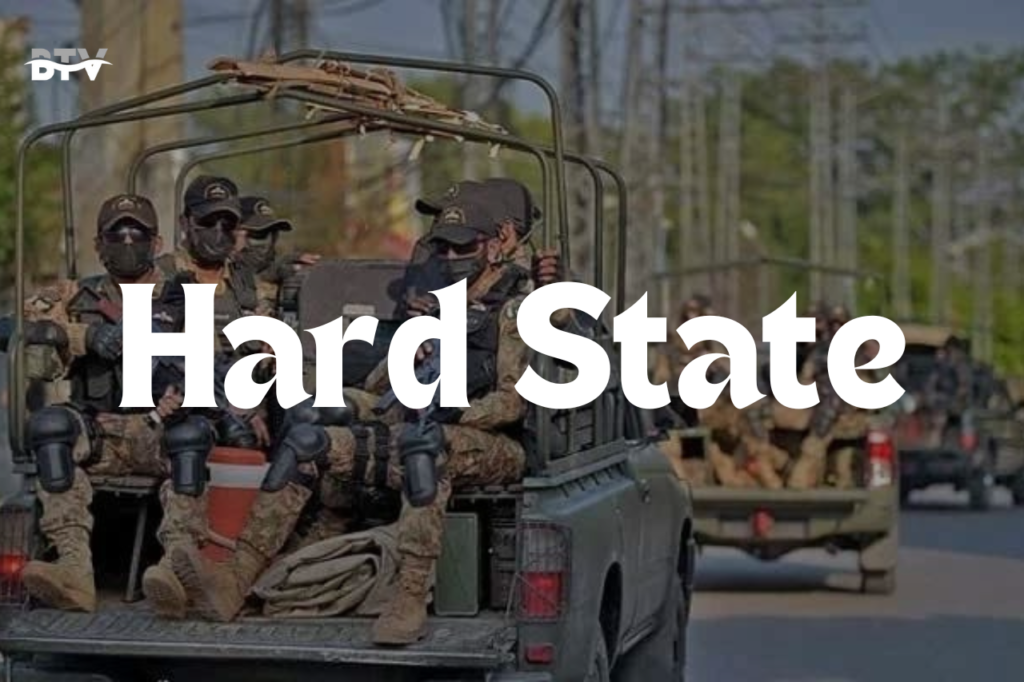The debate surrounding the concept of a “hard state” in Pakistan has sparked intense discussion in the media. As a concerned citizen, I’d like to share my thoughts on this topic, highlighting the complexities and nuances involved.
Pakistan’s state has access to various coercive instruments and hard power, yet it has struggled to achieve core goals such as security, stability, and financial solvency. This raises questions about the effectiveness of a “hard state” approach. Perhaps it’s time to reframe our thinking and focus on building a competent or strong state instead.
A competent state is one that can effectively perform its core functions, including collecting taxes, ensuring rule of law, maintaining order, controlling borders, and delivering public goods. Trust is a crucial attribute of such a state, built on legitimacy, transparency, and accountability. However, Pakistan’s current state of affairs falls short of these criteria. The ongoing debate about “hardening the state” has been prompted by the dire situation in Balochistan, where kinetic means have been used to establish peace. But this approach has only hardened public opinion against the power elite, rather than addressing the underlying drivers of public disaffection.
The state’s policy in Balochistan has been criticized for conflating militants with nationalists and casting dissident groups as traitors or abettors of terrorists. This approach contradicts the basic principle of counter-insurgency, which is to isolate militants and win the trust and support of the local community.
The recent crackdown on the Baloch Yakjehti Committee and arrests of its leaders and human rights activists have only compounded the explosive situation. Forcibly preventing a protest march to Quetta led by former chief minister Akhtar Mengal has further radicalized opinion in the province.
The use of coercive power in a political vacuum has meant that state actions have lacked the authority and legitimacy needed to elicit public support.
Legitimacy is built by meeting people’s needs and aspirations, which has been lacking in Balochistan.In conclusion, a strong state is not built on coercion and repression but on empowering citizens, addressing grievances, and promoting legitimacy.
The situation in Balochistan requires a comprehensive approach that involves political, economic, social, and strategic communication dimensions.
Guidance for CSS Aspirants:
This BTV opinion touches on several key topics relevant to the CSS exam, including:-
- Governance and public administration
- National security and counter-insurgency
- Human rights and social justice
- Political economy and development
Summary and Takeaways:–
- A competent state is built on legitimacy, transparency, and accountability.
- The use of coercive power in Balochistan has hardened public opinion against the power elite.
- A comprehensive approach is needed to address the underlying drivers of public disaffection in Balochistan.
- A strong state is built on empowering citizens, not repressing them.




